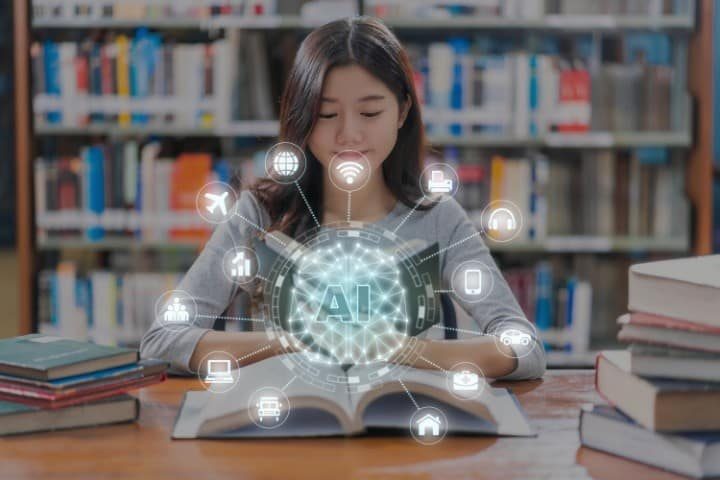
SINGAPORE — Schools and education authorities in Australia are at odds over how to tackle a new artificial intelligence (AI) program, which has been blocked in several states.
In the past week, Queensland and Tasmania have joined the most populous state, New South Wales (NSW), in banning access to ChatGPT in state schools on the grounds that it could be used as a tool for cheating on homework and assessments.
ChatGPT, which was unveiled in November, is an application that permits users to produce text based on queries and instructions.
NSW said it will enforce a ban on the app and other similar software until educators are able to ascertain how to enable students to properly use them. “This (ban) will be in place while we review how to safely and appropriately use this emerging technology in the classroom,” said the NSW Education Department’s acting deputy secretary, Megan Kelly.
Tasmania’s government said it was limiting access to ChatGPT because the company behind the application, OpenAI, mandates that users be at least 18 years old.
However, other states such as Victoria, the second most populous state, have not imposed a ban, saying they are still evaluating the risks.
Meanwhile, some private schools — which do not have to adhere to state bans — have protested against the banning of ChatGPT, saying teachers will be able to identify plagiarized work and the app could actually help teachers to set simple tasks like quizzes and worksheets.
For example, the head of St Andrew’s Cathedral School in Sydney, Dr. Julie McGonigle, told The Sun-Herald newspaper that teachers are well-equipped to detect any efforts to cheat in take-home assignments.
“Hand-in tasks are first crafted in the classroom and submitted in draft form before final submission,” she said. “If a final submission was quite different to the draft worked on in class, it would raise a red flag with the student’s teacher.” Plus, as some analysts have noted, although ChatGPT can generate convincing prose, the end product is not necessarily truthful or logical.
Some education specialists have urged for ChatGPT and other such programs to be permitted in schools, claiming that banning them is like banning Google or other technologies and that AI software can help students to learn.
An analyst on online learning, Dr. Vitomir Kovanovic from the University of South Australia, said bans may be “symbolic” but will not deter students from using the app outside school. He compared the hype over ChatGPT to the fears that arose when students first began using calculators, which led to concerns that mathematics skills would plummet.
“Educators should really be focusing on ways to integrate this technology and make assessments in a way that this tool can be used as a support, to help students,” he told ABC News. “They will use these tools in the workplace anyway…. If you’re going to use the tool, try to use it for learning.”
Dr. Kovanovic said teachers could tweak their teaching and assignment methods in ways that would make such tools mostly useless, such as by asking students to summarize a classroom discussion.
Former school principal Adam Voigt, who now oversees a firm that hopes to amend schools’ culture, claimed the response to ChatGPT was “panicked” and excessive. He admitted that although the app poses a threat to take-home assessments, teachers should find novel ways to test and challenge students.
ChatGPT will “fundamentally change the way we educate, and its first impact will be on the way we assess,” Voigt wrote in The Sydney Morning Herald. “As scary as it may sound, our schools should resist any urge to merely weather the ChatGPT storm and instead embrace its immense possibilities.”
Yet educators’ concerns about ChatGPT are not entirely unfounded. Students are using the app to write their assignments, passing off AI-generated essays as their own. Teachers and school administrators have been struggling to catch students using the tool to cheat, and are frustrated about the chaos ChatGPT could have on their lesson plans. Some publications have even alleged that ChatGPT has killed homework altogether.
The aforementioned Australian states are not the only ones banning the AI app in schools. Across the ocean in the United States, New York City public schools also banned ChatGPT access on school computers and networks, stating “concerns about negative impacts on student learning, and concerns regarding the safety and accuracy of content.”
Schools in other cities, including Seattle, have limited access. Tim Robinson, a spokesman for Seattle Public Schools, said that ChatGPT was blocked on school devices in December, “along with five other cheating tools”
Although some teachers have high hopes for tools such as GPTZero, a program built by a Princeton University student that purports to be able to spot AI-generated writing, these tools are not reliably precise, and it is easy to fool them by altering a few words or using a different AI program to rephrase certain passages.
To complicate matters, the launch of ChatGPT did not have accompanying guidelines on how to use it, other than a promise that ChatGPT will acknowledge when it is wrong, contest “incorrect premises,” and dismiss requests meant to produce offensive answers.
The app’s creators have attempted to lower people’s expectations.
“ChatGPT is incredibly limited, but good enough at some things to create a misleading impression of greatness,” OpenAI CEO Sam Altman said on Twitter in December. “It’s a mistake to be relying on it for anything important right now…. It’s a preview of progress; we have lots of work to do on robustness and truthfulness.”
When asked by an Associated Press reporter how to tell the difference between something written by a human or artificial intelligence, ChatGPT answered, “You can look for the absence of personal experiences or emotions, check for inconsistency in writing style, and watch for the use of filler words or repetitive phrases. These may be signs that the text was generated by an AI.”
OpenAI announced in a human-written statement that it hopes to work with educators as it learns from those figuring out how to use ChatGPT. “We don’t want ChatGPT to be used for misleading purposes in schools or anywhere else, so we’re already developing mitigations to help anyone identify text generated by that system,” the company said.



